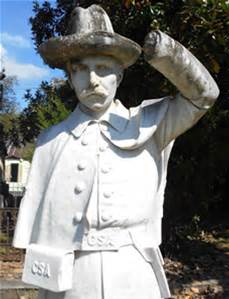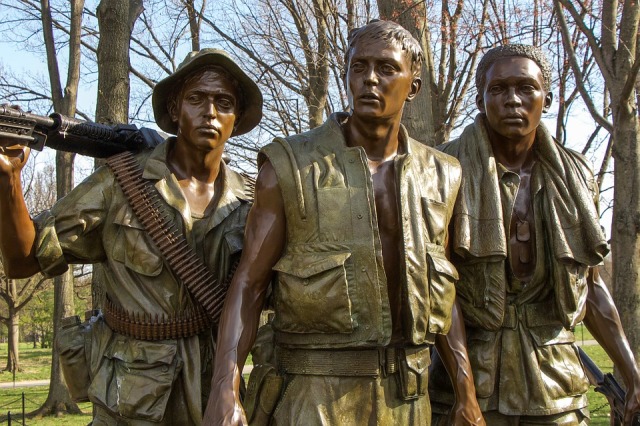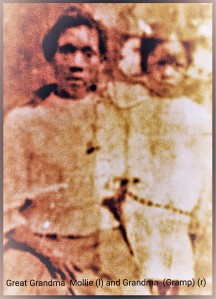
Gramp got snake bit! I was a small child the first time I heard the story of my grandma—Gramp—being bitten by the baby “Diamondback rattlesnake” (one of the most poisonous snakes in the U.S.), but of course, I heard it many times afterwards. According to her, she came very close to “meeting my maker that day and the days that followed”.
It happened one day when, as a young woman, she was picking peas from the pea patch. She didn’t see the miniature viper, nor did she hear him, for the baby rattlesnakes don’t have fully developed rattles like the older, more mature ones do, but they pack more venom—ounce for ounce—than the biggest of rattlers.
A baby Diamondback only has a “bud” on the tip of its tail; and though instinctively, they shake their little tail buds furiously when threatened, the bud makes little or no noise. A beetle’s buzz is probably louder.
As she stepped within range of the small serpent, he struck! His tiny teeth—needle sharp—sank into her ankle. The several days following the bite, were full of; consternation, concern, and care for the young woman lying upon her bed in a feverish heap.
The near invisible puncture mark just above her ankle grew insidiously—over the next several days—into a festering black and blue mound of excruciatingly painful flesh.
Her father, the Right Reverend A. Jordan Smith, prayed fervently and furiously over his baby daughter. He’d also incised an “x” over the bite and attempted to suck the poison from the wound—as was the custom of that day.
Her mother Mollie’s loving hands, caressed, soothed and applied cool compresses to her forehead in a vain attempt to quench the flames of the demon’s fire raging within her. But, despite the prayers and loving care lavished upon the girl, she still inched ever closer towards the precipice of death.
On the third or fourth day, just before the moment of “all hope is lost”, the local “Two-Heads” made an unannounced visit; having obviously been summoned by an anonymous well-wisher. Without a word, the small group surrounding grandma’s bed parted like the Red Sea to let the “Two-Headed” Moses pass. The “Two-Heads” raised his gnarled staff towards the low ceiling of the old weather-beaten, wood-framed house and prayed softly, unlike like the Right Reverend.
The “Two-Heads” then took a wad of “well-chawed” chewing tobacco from his mouth. He made the “chawed” tobacco into a poultice and placed it upon the wound, atop the mound of feverish flesh on Gramp’s ankle. “Leave it there until I return”, he’d told them; then he left.
The next day the “Two-Heads” returned. He removed the “bacca” poultice and placed it back into his mouth where he once again began to chew it; not unlike an old cow chewing a cud. He then removed a frog from inside his ragged cloak. Mumbling unintelligibly, he took out a razor-sharp pocket knife and split the frog, along his soft underbelly—from just below his mouth to a point between his two back legs. He then placed the split side of the frog over the snake bitten area—guts and all—on grandma’s ankle. He turned to face the small group of beloved family members and again issued a caution, “Do not remove the toad frog until I return”. After he issued the caution, he left.
The next morning, the sun rose, the cock crowed thrice, and Gramp sat up; afebrile, countenance glowing, and body fully healed. All who saw it were amazed and prayerfully thankful to Go no nod up above, that the young lady had been brought back from the “jaws of death”; presumably, by a “Two-Headed” man, a plug of “chawing tobacco” and a split “toad-frog”.
Some say that the tobacco and the dead frog, drew the poison from Gramp’s body. They commented that the “old folks say” that it has something to do with the snake preying on the frog, in natural life, and the frog preying on the snake, in the spiritual realm! Who knows? The Word does say the “first shall be last and the last shall be first”!
Here’s a short story from Africa, that might shed some light on the mystery
FROG and SNAKE: An African Folktale
“Ma Frog and Ma Snake had little girls, and both girls wanted to go out to play one sunny afternoon. Ma Snake said, “Look out for things with big paws and shiny claws. Be careful in the bush, little one, and be home before dark.”
The young snake sang as she slithered through the grass, “Sssss, look out for Paws-and-Claws, sssss.”
Nearby, Ma Frog called out, “Be wary of things that poke or snap. Don’t wander into the bush alone, my child, and be home before sundown.”
The young frog sang as she hopped away, “Rrrribit, be wary of the Poke-or-Snap, rrrribit.”
Snake and Frog were still singing when they met along the way, and they almost bumped into each other. A surprised Frog asked Snake, “Are you a ‘Poke-or-Snap?”
“Oh no,” Snake said with a laugh. “Of course not! I’m a snake, and I slip and slide. Are you a ‘Paws-and-Claws?’”
“Goodness no!” replied Frog, who also laughed. “I’m a Frog. I hop and plop.”
As Frog and Snake wandered together into the bush, they decided to become friends. They hugged and sang:
“Let’s make a wish,
and hope it comes true,
to be friends forever,
me and you.”
Frog and Snake snacked on fruit flies and crunchy bugs. Frog showed Snake how to hop. “Watch me!” she said as she hopped up, up in the air and came down with a PLOP!
Snake tried to hop but ended up getting in quite a tangle on the ground. Then Snake showed Frog how to slither. She went to the top of a mound and slid down – SWOOSH! Frog tried to slide but came down in a clumsy tumble.
Frog and Snake laughed at their mistakes. Dusk arrived soon after, and they knew it was time to go home. “Let’s play again tomorrow,” said Frog. “After all, we’re friends now.”
“Yes we are,” replied Snake. “I will see you tomorrow.” They hugged again and said goodbye.
Frog replied, “Oh, I had such a fun day. I met a snake, and we played together. She taught me to slide, and now we are best friends.”
Ma Frog was horrified. “A snake? Dear child, don’t you know that snakes eat frogs? Snakes are bad, and you must promise me that you will never play with snakes again.”
Frog shivered. “Yes,” she answered. “I understand.”
Nearby, Snake arrived home. Ma Snake said, “My, my. You look tired. Where have you been?”
Snake happily replied, “I have a new friend named Frog. We played, and she showed me how to hop.”
Ma Snake was shocked, “A frog? Little one, you are a snake, and snakes are supposed to eat frogs!”
Ma snake continued, “The next time you see her, you must gobble her up.”
Snake lowered her head and answered, “Yes, Mama. I understand.” The next day Snake went to Frog’s house and called out, “Frog, let’s play together!”
Frog huddled inside her house. “Ha!” she said. “My mother told me how snakes really like to play. No thanks. I’m going to stay right here where I’ll be safe.”
“Ah,” Snake said. “My mother talked to me too, and she told me all about frogs and what I should do.”
Snake continued, “So, I guess there is nothing more to say but goodbye.”
“Farewell,” said Frog.
Frog and Snake never played with each other again.
(“Why Frog and Snake Never Play Together” 26 Nov 2007. http://www.howstuffworks.com/why-frog-and-snake-never-play-together-story.htm#> 28 October 2016)
MORAL: “No one is born hating another person because of the color of his skin, or his background, or his religion. People must learn to hate, and if they can learn to hate, they can be taught to love, for love comes more naturally to the human heart than its opposite.” (NELSON MANDELLA)












